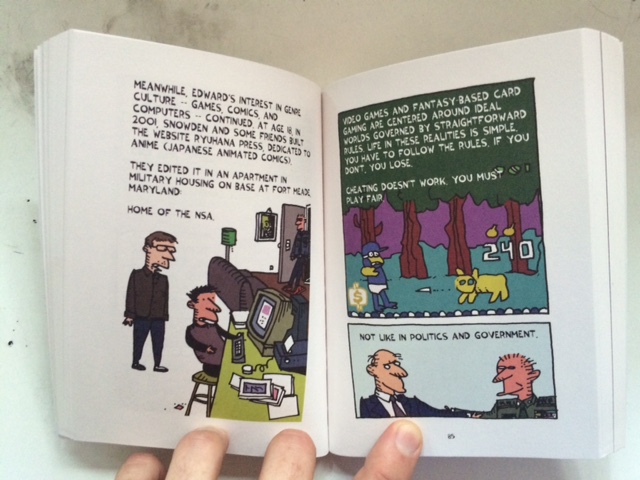JE SUIS TED
I have not been surprised that the mainstream media has ignored the Ted Rall story. That was to be expected.
But I have been greatly surprised, and disappointed, by the tepid (at best) response from the so-called “Comics Community.”
No less than Greg Palast and other heavyweights in the Real Media (i.e. Alternative) have weighed in on this issue. But mostly the “Comics Community” has remained silent.
It also disappoints me that many liberals have left Ted (who is a liberal) hanging in the wind.
Yesterday, Ted posted on Facebook that most of his support over the past three weeks has come from Libertarians such as myself, not his fellow Liberals.
Some have attributed this silence from the Left to Ted’s irreverent attitude towards Obama. I don’t know if that is so, but I will let the idea hang there for you to consider …
There are those on the Right, of course, who also resent Ted’s evisceration of the Right. The fascist Breitbart article about the Rall/LAPD/LA Times affair was particularly stupid, I thought, and fascist. But I will let that hang there, too, for your consideration.
So … how do we account for the silence from the so-called “Comics Community”?
I get that a lot of people in the “Comics Community” don’t like Ted. I’m not sure why exactly, but I will speculate. Correct me if I’m wrong …
First let me say, I have never met Ted. We exchanged a few emails ten years ago when he contributed a piece to “The Bush Junta” (a book I co-edited with Gary Groth), and that is the extent of my communication with him.
Later, Ted wrote an article in a New York magazine that was critical of cartoonist Art Spiegelman. This angered a lot of comics people and led to Ted filing a lawsuit against another cartoonist (one Danny Hellman, whom I have not met) who responded to Ted’s article by impersonating him in a mass email sent out to persons in the comics industry.
Now, I didn’t have a dog in that fight and don’t now. And I don’t give a God Damn what happens in the New York City Art Scene or anywhere else. I live in Texas where New York don’t count for shit, and I am an unrepentant Libertarian. Therefore, I can say this, without fear of retribution from either side of either fucking controversy …
I can say this: If you, my fellow artists, are ignoring this matter that has come up between Ted Rall and the LAPD & LA Times, then you need to do some serious fucking soul searching right now. You need to lay aside your idiot cowardly partisanship and gossipy Cartoonist Catfight shit, and stop being part of the fucking problem.
And as for this fucking Left vs Right Bullshit, man, let it go …
In the following piece, published today, the editor of “Pasadena Weekly” describes how he was pressured by the Los Angeles Police Department to drop Ted’s comic strip.
Read this.





